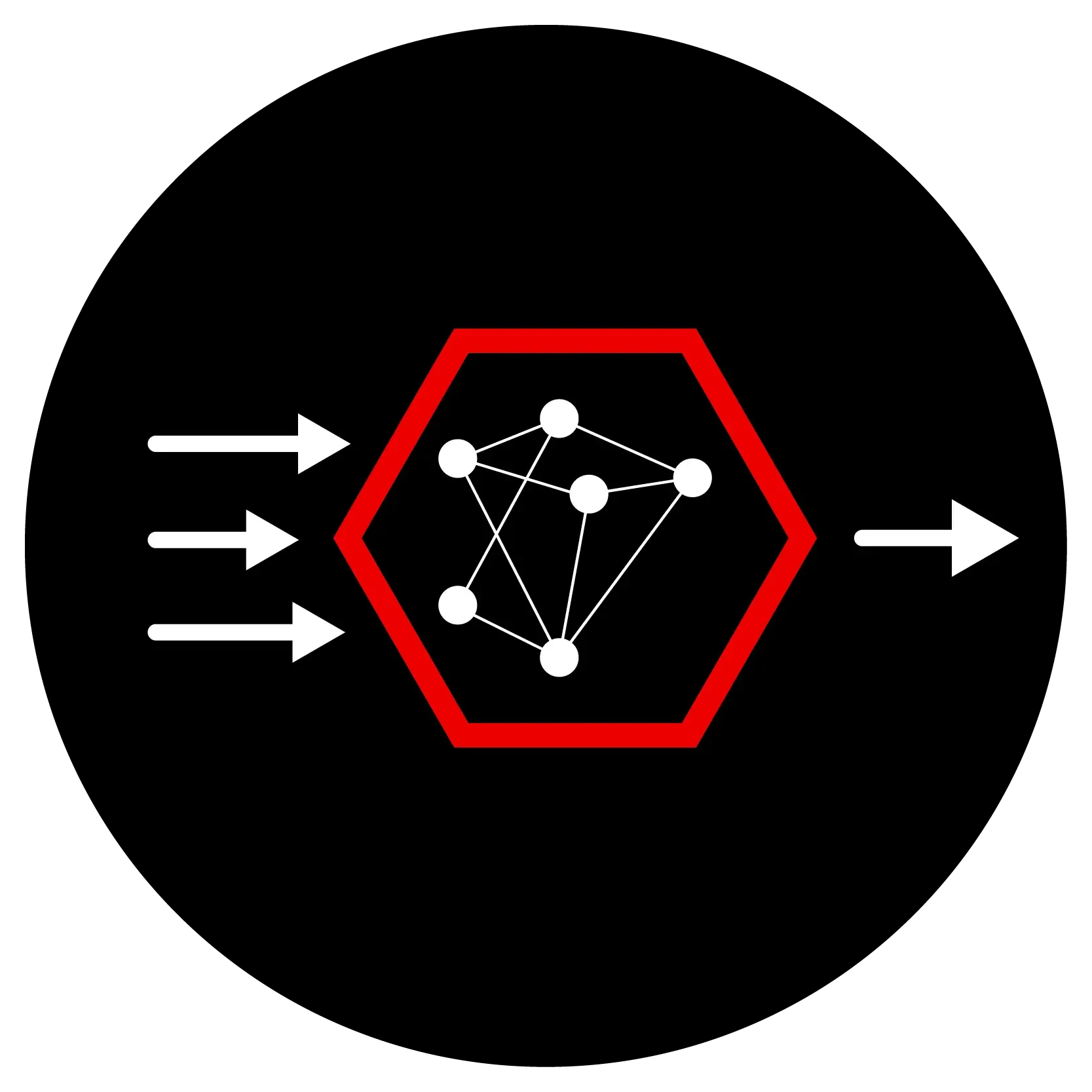Red Hat Service Interconnect
Connects applications and microservices together across Clouds, Kubernetes Clusters, or standalone VMs.

Interconnect applications and microservices across the open hybrid cloud
Based on the open source Skupper project, Red Hat Service Interconnect simplifies application connectivity across the hybrid cloud. Unlike traditional means of interconnectivity (such as VPNs combined with complex firewall rules), development teams can easily create interconnections without elevated privileges and deliver protected links without compromising the organization's security or data.
Applications and services across your environments can communicate with each other using Red Hat Service Interconnect as if they were all running in the same site. This connectivity can be maintained even as applications are migrated between environments.
Use cases
Connect services across the hybrid cloud
Make any service from any cloud available securely on any other cloud. Service Interconnect routers and gateways provide trusted communication links between services on different clouds, edge devices, generic Kubernetes, and OpenShift.
Related content:
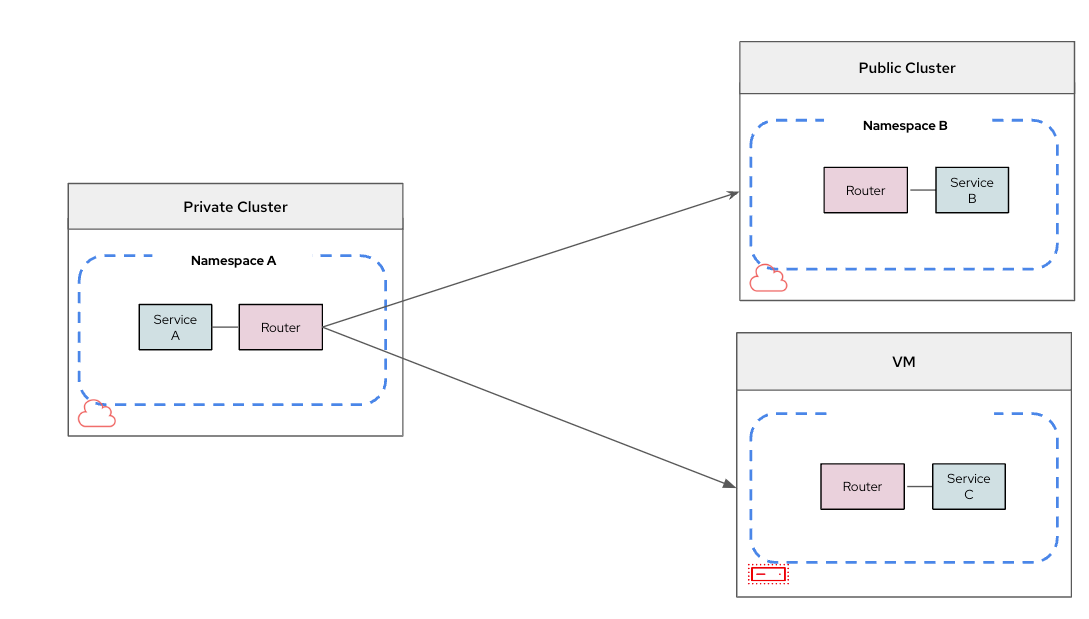
Integrate legacy applications on-premise with OpenShift clusters in the cloud
Service Interconnect allows legacy or “never-migrate” applications to continue running independently in their original environments while new web-tier applications are deployed in the cloud. To the cloud-native apps running in the cloud, these “legacy” apps appear to be cloud-native apps as well.
Related content:
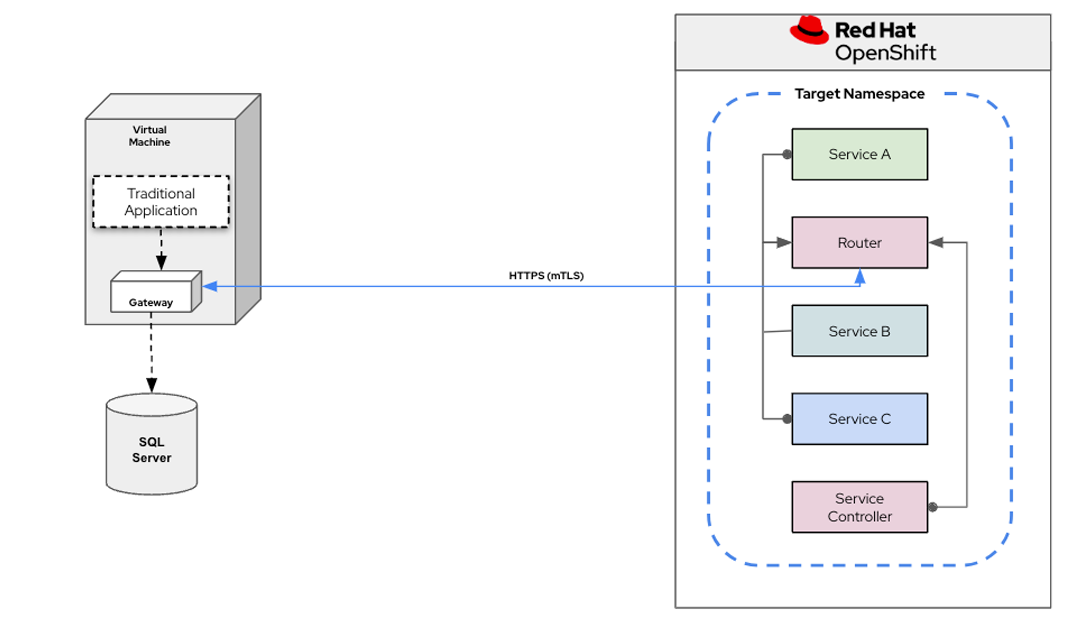
Progressive Kubernetes-to-OpenShift migration
Service Interconnect lets you migrate progressively, one service at a time, reducing effort and risk when migrating between major versions of OpenShift or from any CNCF certified Kubernetes to OpenShift. Services are moved from the source to the target OpenShift cluster one by one. The services themselves behave as if they are still on the same cluster until the migration is complete.
Related content:
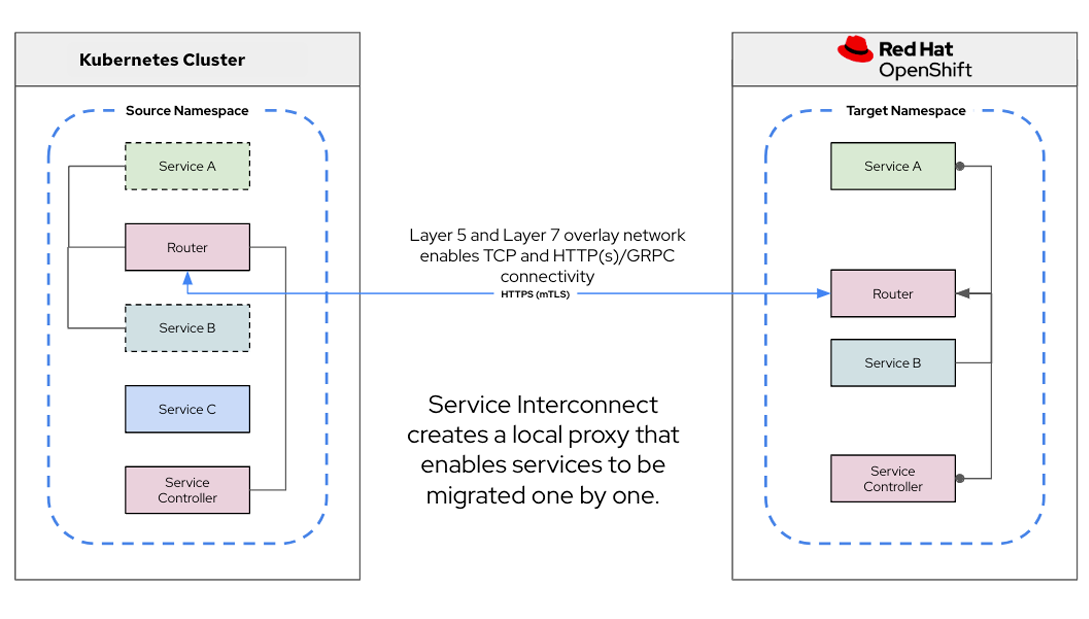
Federated machine learning
The ephemeral nature of the networks created by Service Interconnect enables federated learning from multiple different data sources without actually copying or giving up control of the data itself. It provides a decentralized and privacy-preserving approach to machine learning, allowing for efficient model training in dynamic and intermittently connected environments.
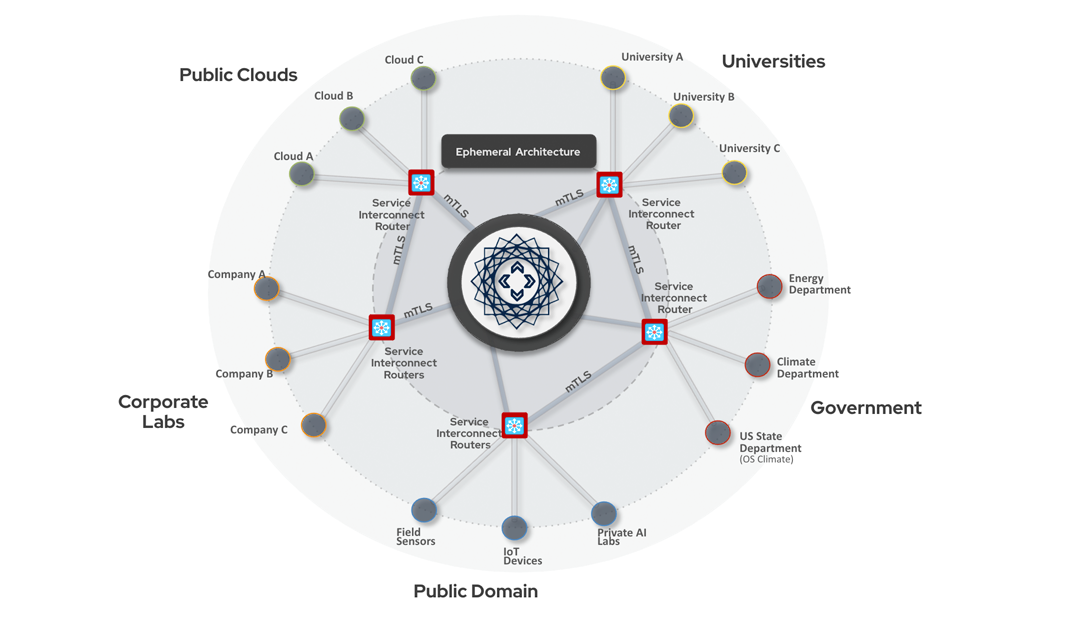
Provide secure access for on-prem services to access remote GPUs
Skupper unlocks a seamless and secure way for on-premises services to harness the power of remote GPUs. Elevate your performance with confidence, ensuring a frictionless connection between your local infrastructure and high-performance computing resources with Red Hat Service Interconnect.
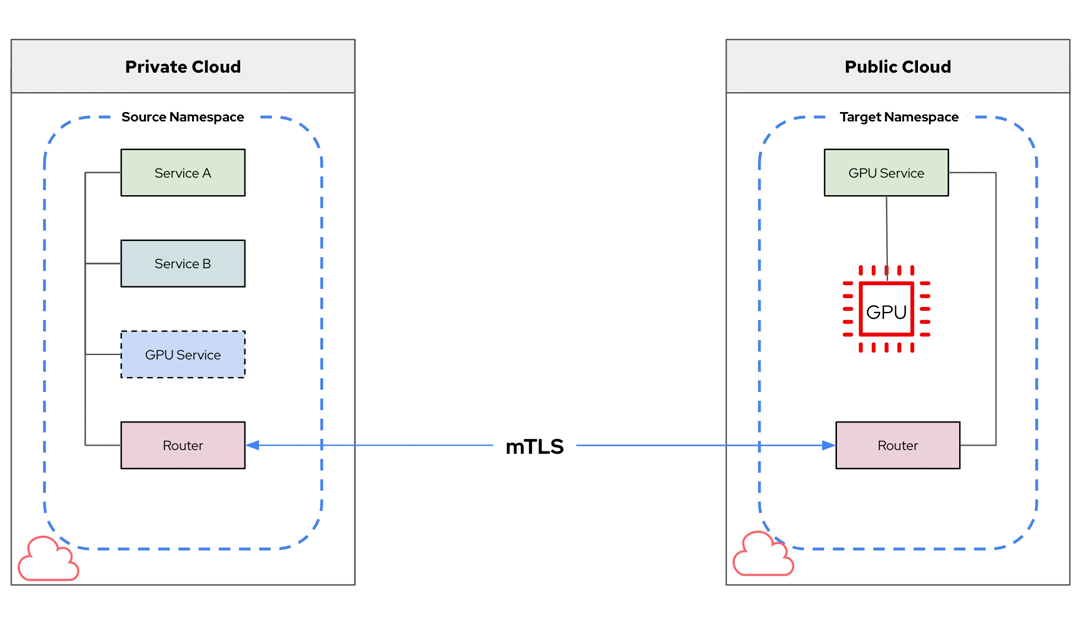
Database replication across clouds
When relying on multiple cloud providers for redundancy, maintaining database consistency across clouds is crucial for replicating environments seamlessly. With Service Interconnect, databases can use their native replication features across a protected channel, without compromising the services of one cloud to those of another.
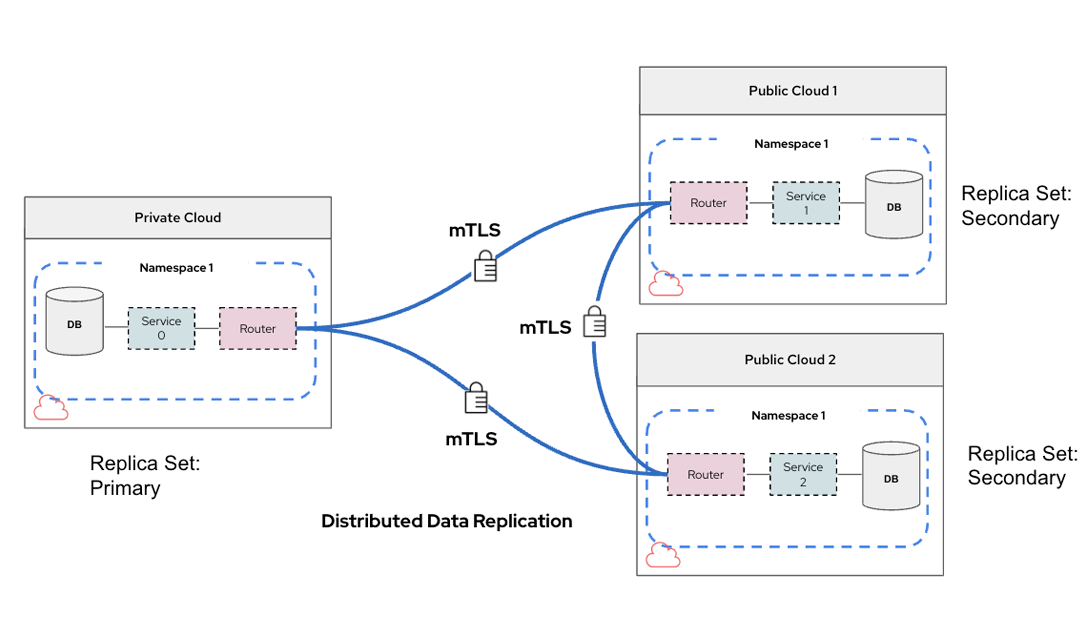
Progressive private datacenter (bare metal/VM/RHEL) to OpenShift Migration
When services or applications are located on Red Hat Enterprise Linux (RHEL), Service Interconnect installs as a systemd service, a RHEL Service Gateway, or Podman containers on the same RHEL machine or even on an adjacent RHEL machine on the same network segment, allowing services to be migrated progressively to OpenShift.
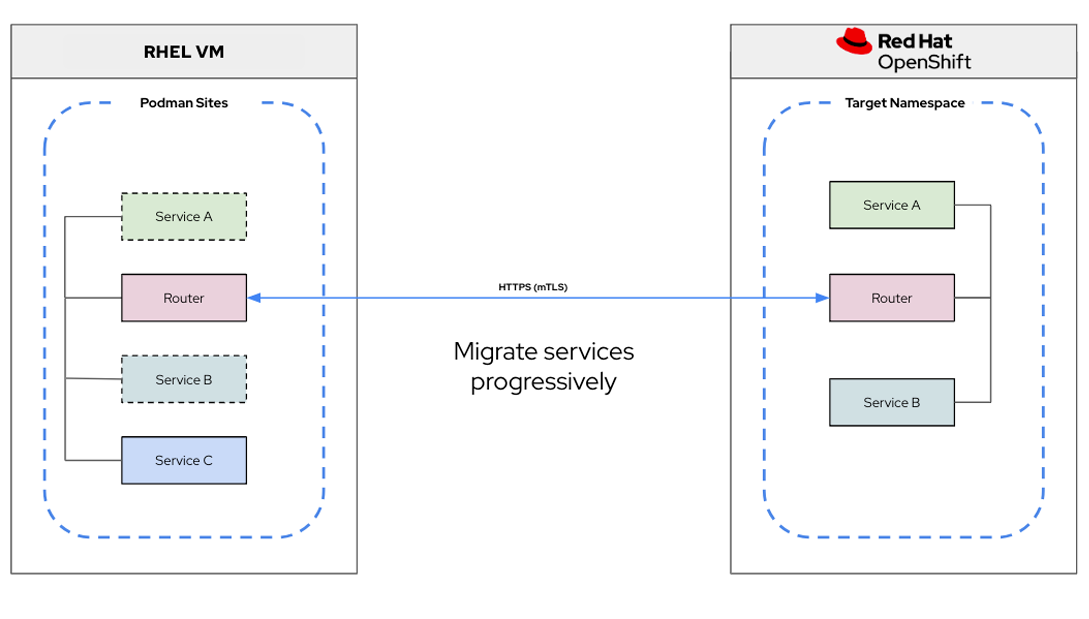
Service Interconnect in the Community
Skupper is a Layer 7 service interconnect that enables secure communication across Kubernetes clusters with no VPNs or special firewall rules. With Skupper, your application can span multiple cloud providers, data centers, and regions. The Skupper project is completely open source and licensed under the Apache License version 2.0.

Get a different perspective
Want to learn more about the value that Red Hat Service Interconnect can bring to your organization? Visit the page on redhat.com to take a closer look at product benefits and business solutions. Browse resources and customer stories, or talk to a Red Hatter to get started.



